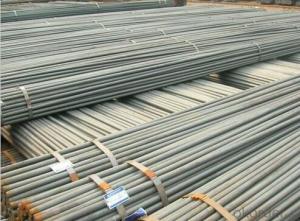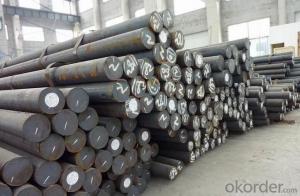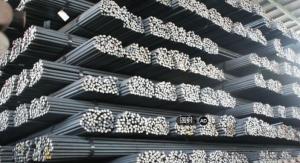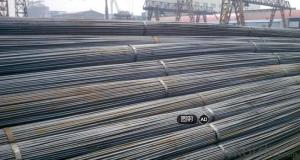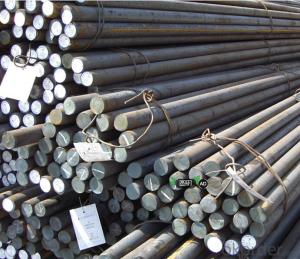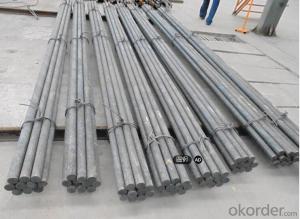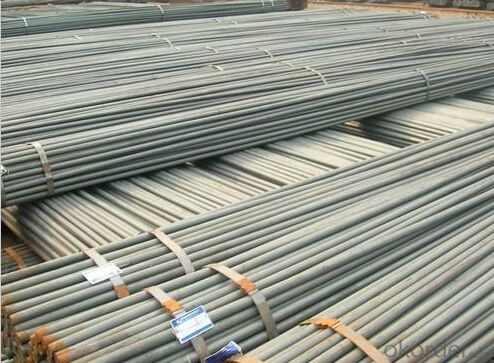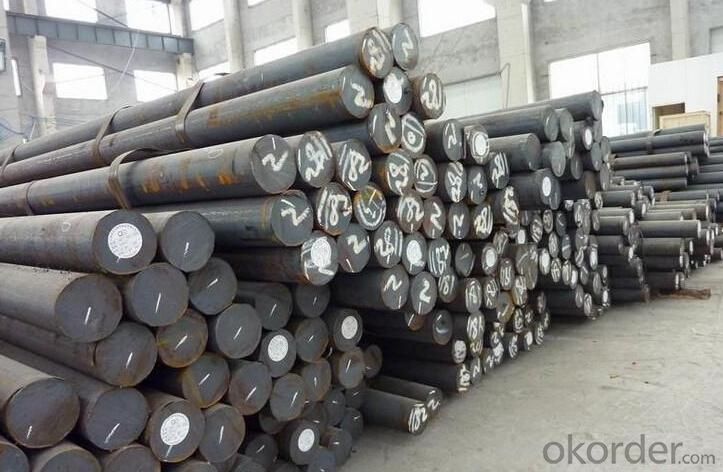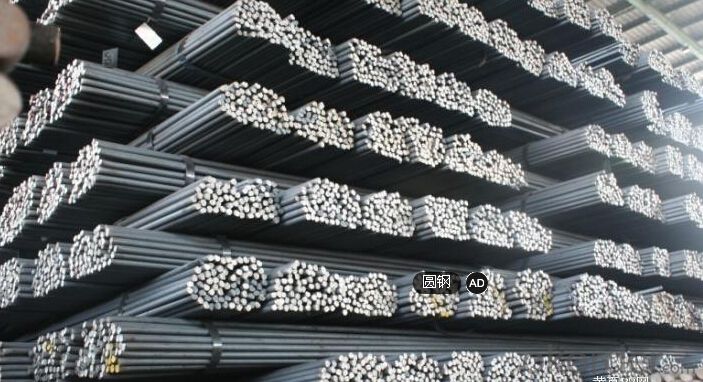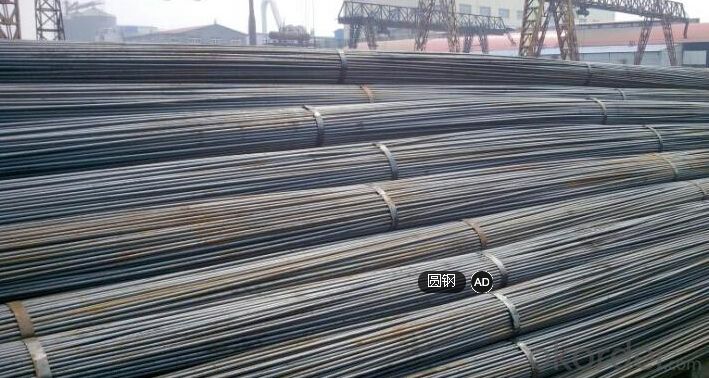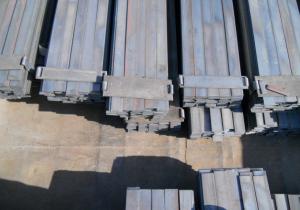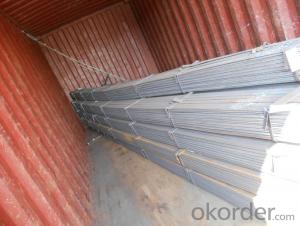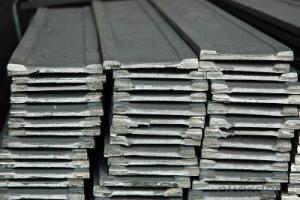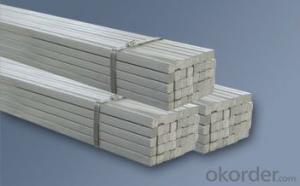Q345B Straight and Smooth Flat Steel Bar
- Loading Port:
- Qingdao
- Payment Terms:
- TT OR LC
- Min Order Qty:
- 5 m.t.
- Supply Capability:
- 100000 m.t./month
OKorder Service Pledge
Quality Product, Order Online Tracking, Timely Delivery
OKorder Financial Service
Credit Rating, Credit Services, Credit Purchasing
You Might Also Like
Specification
Type:
Carbon Steel,Spring Steel,Bearing Steel,Gear Steel,Deformed Steel,Stainless Steel,Alloy Steel
Shape:
Steel Coil,Steel Sheet,Steel Wire Rod,Steel Flat Bar,Steel Square Bar,Steel Angle,Steel Round Bar,Steel Billets
Technique:
Hot Rolled,Cold Rolled,Cold Drawn,ERW,Forged,Saw,Extruded,EFW,Spring
Surface Treatment:
Galvanized,Coated,Copper Coated,Color Coated,Oiled,Dry,Chromed Passivation,Polished,Bright,Black,PVDF Coated
Certification:
ISO,SGS,BV,IBR,RoHS,CE,API,BSI,UL
Thickness:
8-600mm
Width:
8-600mm
Length:
6-12m
Outer Diameter:
8-600mm
Net Weight:
100kg
Packaging:
seaworthy packaging
Q345B Straight and Smooth Flat Steel Bar
Detailed Information of Q345B Straight and Smooth Flat Steel Bar
| Name | Steel Round Bar |
| Shape | Round Bar/Square Bar/Flat Bar/Plate/Wire |
| Standard | GB/ASTM/SAE/AISI/DIN/JIS/EN/BS |
| Surface Treatment: | Black/Peeling/Polished/Machined |
| Delivery Condition: | Hot Rolled or Forged/Peeled or Black Surface |
| Test | SGS/UT 100% Elements Testing |
| Certificate: | ISO/Mill Certificate |
| Service: | 24 hours online service / |
| more than 20 years trading and manufacture | |
| Quality Assurance: | the third party inspection, such as SGS, BV, TUV…etc. is acceptable |
| Packaging Details: | Seaworthy Packaging or as per customer's packing instruction |
Product Overviews of Q345B Straight and Smooth Flat Steel Bar
| Product Name | Typical Grades | Diameter(mm) | Standard Adopted |
| Carbon Steel | 20 (1020/S20C/C22) | ||
| 40 (1040/S40C/C40) | Ø16-Ø300 | ||
| 45 (1045/S45C/C45) | |||
| Bearing Steel | GCr9 (51100/SUJ1) | ||
| GCr15 (52100/SUJ2/100Gr6) | Ø12-Ø250 | ||
| GCr9SiMn (A485-Gr.1/SUJ3) | GB/SAE/ | ||
| Cr-Mo Steel | 20Cr (5120/SCr420H/20Cr4) | JIS/DIN | |
| 40Cr (5140/SCr440/41Cr4) | Ø12-Ø250 | ||
| 42CrMo(4140/SCM440/42CrMo4) | |||
| Gear Steel | 20CrNiMo | ||
| 20CrMn(5115/SMnC420/20MnCr5) | Ø16-Ø600 | ||
| 20CrNiMo(8620/SNCM220/20CrMiMo2) |
Company Introduction of Q345B Straight and Smooth Flat Steel Bar
CNBM International Corporation is the most import and export platform of CNBM group(China National Building Material Group Corporation) ,which is a state-owned enterprise, ranked in 270th of Fortune Global 500 in 2015.
With its advantages, CNBM International are mainly concentrate on Cement, Glass, Iron and Steel, Ceramics industries and devotes herself for supplying high quality series of refractories as well as technical consultancies and logistics solution.
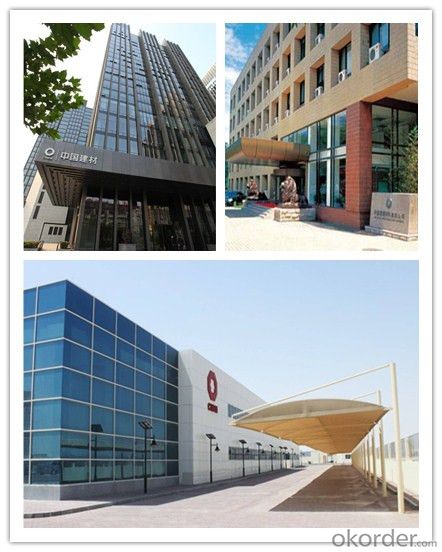
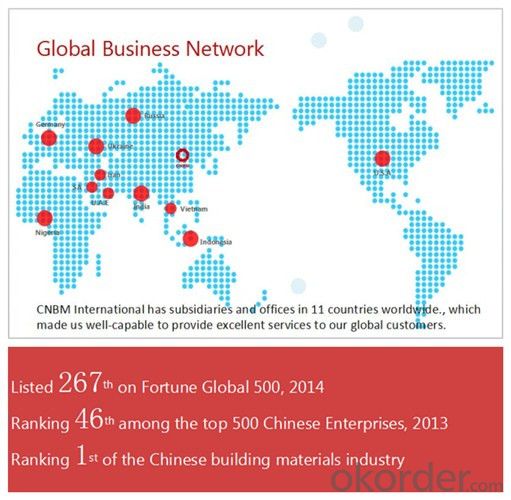
| After-sale service | l CNBM provides the services and support you need for every step of our cooperation. We’re the business partners you can trust; you can relax and get on with doing business. |
| l For any problem, please kindly contact us at any your convenient time, we’ll reply you in our first priority within 24 hours | |
| Advantages | l Industry experience over 20 years. |
| l Shipment of goods -More than 70 countries worldwide. | |
| l The most convenient transport and prompt delivery. | |
| l Competitive price with best service. | |
| l High technical production line with top quality products. | |
| l High reputation based on best quality products. | |
Packaging & Delivery of Q345B Straight and Smooth Flat Steel Bar
| Packaging Detail | Sea worthy packing /as per customer's packing instruction |
| Delivery Detail | 15 ~ 40 days after receiving the deposit |
Products Show
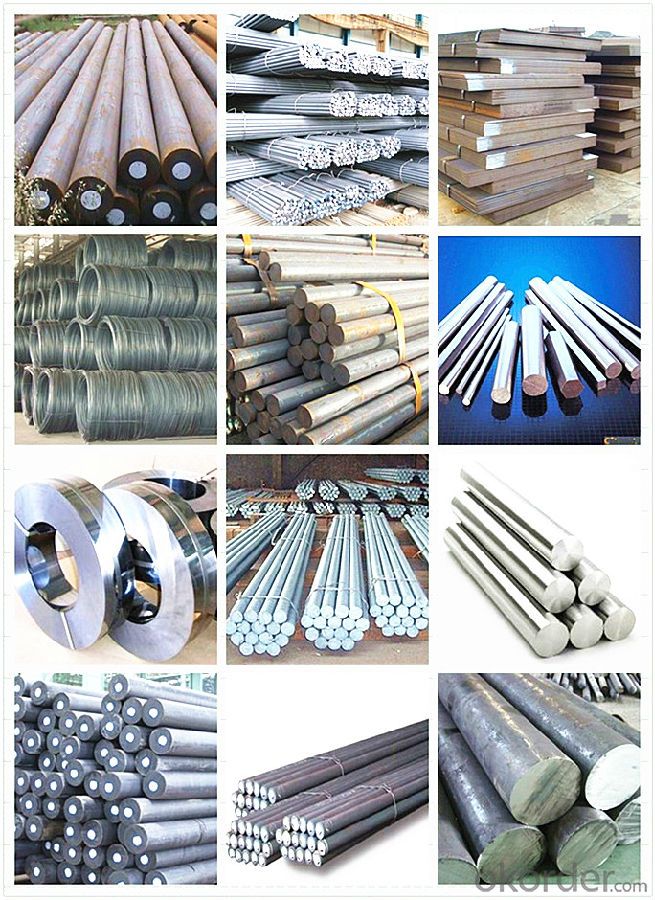
FAQ:
| Are you a trading company or manufacturer? | Manufacturer |
| What’s the MOQ? | 1000m2 |
| What’s your delivery time? | 15-20 days after downpayment received |
| Do you Accept OEM service? | Yes |
| what’s your delivery terms? | FOB/CFR/CIF |
| What's the Payment Terms? | 30% as deposit,70% before shipment by T/T |
| Western Union acceptable for small amount. | |
| L/C acceptable for large amount. | |
| Scrow ,Paybal,Alipay are also ok | |
| Why choose us? | Chose happens because of quality, then price, We can give you both. Additionally, we can also offer professional products inquiry, products knowledge train (for agents), smooth goods delivery, excellent customer solution proposals. |
| What's your available port of Shipment? | Main Port, China |
| What’s your featured services? | Our service formula: good quality+ good price+ good service=customer's trust |
| Where are your Market? | Covering more than 160 countries in the world |
- Q: What are the properties of nickel-based alloys?
- Nickel-based alloys possess several key properties including high corrosion resistance, excellent heat resistance, good mechanical strength, and a combination of high toughness and durability. They also exhibit good electrical and thermal conductivity, making them suitable for various applications in industries such as aerospace, chemical processing, and power generation. Additionally, nickel-based alloys have the ability to maintain their properties at elevated temperatures, making them ideal for use in extreme environments.
- Q: What are the different surface treatments available for special steel?
- There are several different surface treatments available for special steel, including galvanizing, electroplating, powder coating, painting, and heat treatment. These treatments are used to enhance the appearance, corrosion resistance, hardness, and overall performance of the steel, depending on the specific requirements of the application.
- Q: How is special steel used in the power generation industry?
- Special steel is used in the power generation industry for various applications such as turbine blades, generator rotors, and boiler components. These steels possess exceptional strength, corrosion resistance, and heat resistance properties, making them suitable for withstanding high temperatures and pressures in power plants. They help improve the efficiency and reliability of power generation equipment, ensuring safe and uninterrupted electricity production.
- Q: What are the main applications of special steel in the mining processing?
- Special steel is widely used in mining processing due to its superior strength, durability, and resistance to extreme conditions. It is primarily used in the manufacturing of mining equipment such as crushers, conveyors, and drilling machines. Special steel is also utilized in the construction of mining infrastructure, including tunnels, shafts, and support structures. Additionally, it is employed in the production of wear-resistant components, such as grinding balls and liners, which are crucial for efficient ore processing. Overall, special steel plays a vital role in enhancing the productivity, efficiency, and safety of mining operations.
- Q: How does special steel perform in high-temperature creep resistance?
- The outstanding performance of special steel in resisting high-temperature creep is well-known. Creep refers to the tendency of a material to deform or strain under constant stress when it is subjected to elevated temperatures. Ordinary steels may experience notable creep under such conditions, which can result in a decrease in their mechanical properties and potential failure. However, special steels are specifically engineered to endure high-temperature creep, making them extremely suitable for applications where resistance to time-dependent deformation is crucial. These steels are frequently alloyed with elements like chromium, molybdenum, and vanadium, which enhance their properties at high temperatures. The alloying elements present in special steels create stable carbides and nitrides, which serve as strengthening agents. They hinder grain growth and prevent dislocation movement, thereby leading to improved creep resistance and structural stability even in extremely high temperatures. Moreover, special steels often undergo heat treatment processes like quenching and tempering, which further enhance their resistance to creep and overall mechanical performance. Additionally, the microstructure of special steels is meticulously controlled during the manufacturing process to ensure optimal resistance to creep. Typically, fine-grained structures with a high concentration of precipitates or second-phase particles are developed. These structures impede dislocation movement and enhance creep strength. To summarize, special steels possess exceptional resistance to high-temperature creep due to their alloying elements, heat treatment processes, and controlled microstructures. They can withstand prolonged exposure to elevated temperatures without significant deformation or loss of mechanical properties, making them indispensable in industries such as aerospace, power generation, and petrochemicals where high-temperature applications are prevalent.
- Q: What are the different methods of surface grinding for special steel?
- There are several different methods of surface grinding that can be used for special steel. Here are some of the most commonly utilized methods: 1. Blanchard Grinding: This method involves using a rotary table and a grinding wheel to remove material from the surface of the steel. The grinding wheel is typically made of abrasive particles bonded together in a matrix and rotates at a high speed. Blanchard grinding is known for its ability to quickly and efficiently remove large amounts of material, making it suitable for roughing operations. 2. Precision Grinding: This method is often used for finishing operations, where a high degree of accuracy and surface finish is required. Precision grinding involves using a surface grinder with a fine-grit grinding wheel to remove a small amount of material from the surface of the steel. This process is typically slower and more precise than Blanchard grinding, resulting in a smoother and more polished surface. 3. Centerless Grinding: This method is commonly used for cylindrical steel parts that require a high degree of precision. Centerless grinding involves feeding the steel between a grinding wheel and a regulating wheel, with the grinding wheel removing material from the surface as it rotates. The regulating wheel controls the speed and feed rate of the steel, ensuring consistent and accurate grinding. 4. Creep Feed Grinding: This method is used for heavy stock removal on large steel parts. Creep feed grinding involves using a slow feed rate and deep cuts to remove material from the surface. This method is typically used for specialized applications where traditional surface grinding methods are not suitable due to the size or complexity of the steel part. Overall, the choice of surface grinding method for special steel will depend on factors such as the desired surface finish, accuracy requirements, and the size and complexity of the steel part. It is important to consult with a skilled grinding professional to determine the most appropriate method for a specific application.
- Q: What are the different heat treatment grades of special steel?
- There are several different heat treatment grades of special steel, each with its own unique properties and applications. Some of the commonly used heat treatment grades include: 1. Annealed Steel: This grade of special steel is treated through the annealing process, which involves heating the steel to a specific temperature and then cooling it slowly to enhance its ductility and reduce its hardness. Annealed steel is typically used in applications where toughness and machinability are required. 2. Normalized Steel: Normalizing is a heat treatment process that involves heating the steel above its critical temperature and then cooling it in still air. This treatment refines the grain structure of the steel, improves its mechanical properties, and reduces internal stresses. Normalized steel is often used in applications where high strength and good weldability are desired. 3. Quenched and Tempered Steel: This grade of special steel undergoes a two-step heat treatment process. Firstly, the steel is heated to a high temperature and then rapidly cooled in a quenching medium such as oil or water. This process results in a hardened and brittle steel. To regain some toughness and reduce brittleness, the steel is then tempered by reheating it to a lower temperature. Quenched and tempered steel is commonly used in applications that require high strength, such as construction machinery, mining equipment, and automotive parts. 4. Precipitation Hardening Steel: This grade of special steel is treated by a combination of heat treatment and precipitation hardening. The steel is initially solution treated at high temperatures to dissolve alloying elements, followed by rapid cooling to retain a supersaturated solid solution. Subsequently, the steel is aged at a lower temperature for a specific period of time, allowing the formation of fine precipitates that contribute to increased strength and hardness. Precipitation hardening steel is utilized in applications where high strength and corrosion resistance are essential, such as aerospace components and high-performance tools. 5. Case Hardening Steel: Case hardening is a surface heat treatment process used to increase the hardness of the outer layer of steel while maintaining a tough and ductile core. This is achieved by carburizing or nitriding the steel, which introduces carbon or nitrogen into the surface layer, respectively. Case hardening steel is commonly used in applications requiring wear resistance, such as gears, bearings, and camshafts. These are just a few examples of the various heat treatment grades available in special steel. Each grade offers unique properties and advantages, allowing for a wide range of applications across different industries.
- Q: What are the different testing methods for special steel?
- There are various testing methods for special steel, including hardness testing, tensile testing, impact testing, metallographic testing, and non-destructive testing. Each method helps assess different properties of the steel, such as strength, toughness, microstructure, and defects, ensuring its quality and suitability for specific applications.
- Q: What are the key differences between special steel and tool steel?
- Special steel and tool steel are both types of steel that have specific properties and applications. However, there are some key differences between the two. 1. Composition: Special steel is a broad term that encompasses a variety of steel alloys with specific properties for different applications. It can include stainless steel, high-strength alloy steel, and heat-resistant steel, among others. On the other hand, tool steel is a specific type of special steel that is designed to be used in the production of tools, dies, and molds. Tool steel typically contains higher levels of carbon and other alloying elements like chromium, vanadium, or tungsten, which enhance its hardness, wear resistance, and toughness. 2. Hardness and wear resistance: Tool steel is known for its exceptional hardness and wear resistance, which makes it ideal for cutting, shaping, and forming materials. It can withstand high temperatures and resist deformation, ensuring the longevity of tools and dies. Special steel, on the other hand, may not have the same level of hardness and wear resistance as tool steel, as its properties vary depending on the specific alloy and application. Special steel alloys may prioritize other properties like corrosion resistance or strength. 3. Manufacturing processes: Tool steel is often produced through specialized manufacturing processes like hot working, cold working, or heat treatment to achieve the desired properties. The production of tool steel involves precise control of temperature and cooling rates to achieve the required hardness and toughness. Special steel, on the other hand, may undergo various manufacturing processes depending on the desired properties. These can include forging, casting, or heat treatment, among others. 4. Applications: Tool steel is primarily used in the production of tools, dies, and molds for manufacturing processes such as cutting, shaping, and forming materials. It is commonly used in industries like automotive, aerospace, and machinery. Special steel, on the other hand, has a wide range of applications depending on the specific alloy and properties. It can be used in industries such as construction, energy, and manufacturing, where specific properties like corrosion resistance, heat resistance, or strength are required. In summary, the key differences between special steel and tool steel lie in their composition, hardness, wear resistance, manufacturing processes, and applications. While special steel is a broad term for various steel alloys with specific properties, tool steel is a specific type of special steel designed for tooling applications. Tool steel is characterized by its exceptional hardness and wear resistance, making it ideal for cutting and shaping materials, while special steel can have a broader range of properties depending on the specific alloy and application.
- Q: What is the purpose of cold drawing in special steel production?
- Cold drawing is utilized in special steel production with the aim of enhancing the mechanical properties and dimensional accuracy of the steel. This technique involves pulling the steel through a die at room temperature, which leads to a reduction in the cross-sectional area and an increase in the length of the steel. By undergoing this process, the microstructure of the steel is refined, resulting in improved strength, hardness, and toughness. Furthermore, cold drawing has the ability to improve the surface finish and straightness of the steel, ensuring precise dimensions and making it suitable for a wide range of applications that require high-quality steel. In summary, cold drawing plays a vital role in improving the performance and quality of special steel, making it more dependable and efficient in various industrial sectors.
Send your message to us
Q345B Straight and Smooth Flat Steel Bar
- Loading Port:
- Qingdao
- Payment Terms:
- TT OR LC
- Min Order Qty:
- 5 m.t.
- Supply Capability:
- 100000 m.t./month
OKorder Service Pledge
Quality Product, Order Online Tracking, Timely Delivery
OKorder Financial Service
Credit Rating, Credit Services, Credit Purchasing
Similar products
Hot products
Hot Searches
Related keywords
